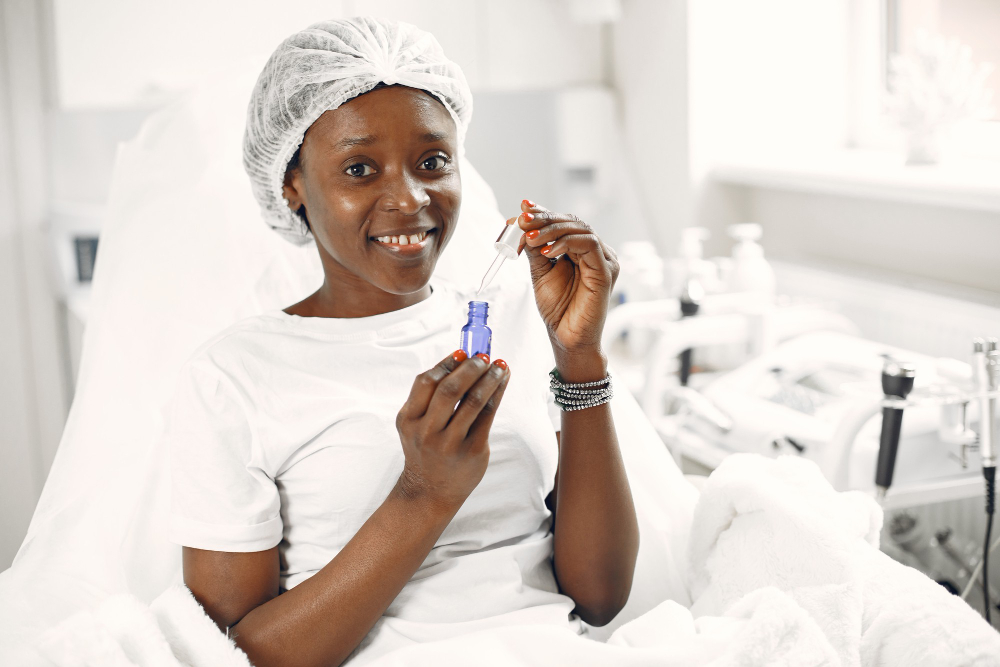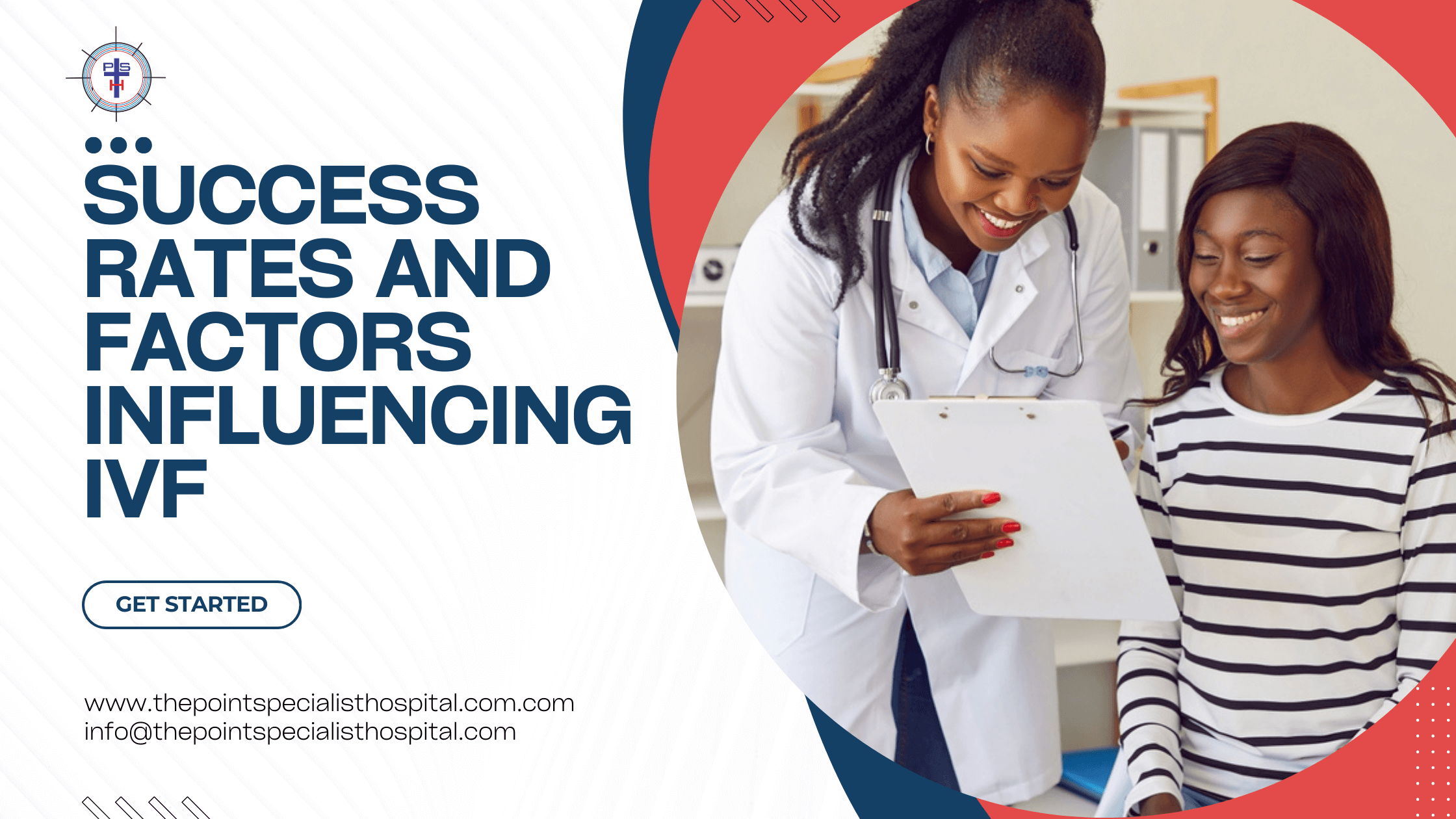Success Rates and Factors Influencing IVF Outcomes
In vitro fertilization (IVF) has become a beacon of hope for many couples struggling with infertility. However, the success of IVF is influenced by a myriad of factors, making it a complex journey with varied outcomes. This blog will delve into the key factors that impact the success rates of IVF, including age, health conditions, and lifestyle choices. Additionally, we will explore statistical success rates, methods to improve the chances of a successful pregnancy, and how to interpret these statistics effectively.
Understanding IVF Success Rates
What is IVF?
In vitro fertilization (IVF) is a process by which an egg is fertilized by sperm outside the body, in a laboratory dish. Once the egg is fertilized, it becomes an embryo, which is then implanted into the uterus with the hope that it will lead to a successful pregnancy.
Statistical Success Rates
The success rates of IVF can vary widely based on several factors, including the clinic's experience, the age of the woman, and the underlying cause of infertility. According to the Centers for Disease Control and Prevention (CDC), the average live birth rate for each IVF cycle started is approximately:
- 41-43% for women under age 35
- 33-36% for women aged 35-37
- 23-27% for women aged 38-40
- 13-18% for women aged over 40
These statistics are averages and can vary from one clinic to another and from one individual to another based on numerous influencing factors.

Key Factors Influencing IVF Success Rates
1. Age
Age is one of the most significant factors affecting IVF success rates. The quantity and quality of a woman’s eggs decline as she ages, which can impact the chances of successful fertilization and implantation.
- Women Under 35: Younger women typically have higher success rates with IVF due to better egg quality and a higher ovarian reserve.
- Women Over 35: As women age, the ovarian reserve diminishes, and the eggs are more likely to have chromosomal abnormalities, leading to lower success rates.
- Advanced Maternal Age (Over 40): Women over 40 may experience significantly reduced success rates due to the decline in egg quality and quantity.
2. Health Conditions
Certain health conditions can also impact the success of IVF:
- Polycystic Ovary Syndrome (PCOS): Women with PCOS may face challenges with ovulation but can still achieve successful IVF outcomes with proper medical management.
- Endometriosis: This condition, where tissue similar to the lining of the uterus grows outside it, can affect the quality of eggs and the uterine environment.
- Uterine Fibroids: Non-cancerous growths in the uterus can interfere with embryo implantation.
- Tubal Factor Infertility: Damaged or blocked fallopian tubes can be bypassed with IVF, but the underlying cause can still influence success rates.
- Male Factor Infertility: Issues such as low sperm count or motility can be mitigated with techniques like intracytoplasmic sperm injection (ICSI), improving the chances of successful fertilization.
3, Lifestyle Choices
Lifestyle choices play a crucial role in the success of IVF:
- Smoking: Smoking has been shown to reduce fertility in both men and women. It can lower egg quality, decrease sperm count, and negatively impact the uterine environment.
- Alcohol Consumption: Excessive alcohol intake can affect reproductive health and decrease the chances of successful IVF.
- Body Weight: Both underweight and overweight individuals may face reduced fertility. Maintaining a healthy weight through proper diet and exercise can improve IVF outcomes.
- Stress: High levels of stress can negatively impact fertility and the success of IVF. Techniques such as mindfulness, yoga, and counseling can help manage stress levels.
4. Genetic Factors

Genetic factors can also influence IVF outcomes. Genetic testing of embryos (Preimplantation Genetic Testing or PGT) can identify chromosomal abnormalities and select the healthiest embryos for transfer, potentially increasing the chances of a successful pregnancy.
5. Previous Pregnancy History
A woman's previous pregnancy history can provide insights into her reproductive health and potential IVF success. Women who have had successful pregnancies in the past may have higher success rates compared to those who have experienced recurrent miscarriages or failed IVF cycles.
Improving Chances of a Successful Pregnancy
a. Selecting the Right Clinic
Choosing a reputable fertility clinic with experienced medical professionals can significantly impact IVF success rates. Researching clinic success rates, reading reviews, and consulting with doctors can help make an informed decision.
b. Personalized Treatment Plans
Individualized treatment plans tailored to address specific health conditions and infertility causes can improve outcomes. This may include hormone treatments, lifestyle modifications, and specialized procedures like ICSI or PGT.
c. Optimizing Health
Maintaining a healthy lifestyle is crucial for improving IVF success rates:
- Nutrition: A balanced diet rich in vitamins and minerals supports reproductive health. Nutrients like folic acid, vitamin D, and omega-3 fatty acids are particularly important.
- Exercise: Regular physical activity helps maintain a healthy weight and reduces stress. However, extreme exercise should be avoided as it can negatively impact fertility.
- Stress Management: Incorporating stress-reducing practices such as meditation, acupuncture, and counseling can enhance overall well-being and support fertility.
d, Medications and Supplements
Certain medications and supplements may improve IVF success rates. For example, Coenzyme Q10 (CoQ10) has been shown to improve egg quality in older women. However, it is essential to consult with a healthcare provider before starting any new medication or supplement.
e. Advanced Technologies
Advances in reproductive technology, such as time-lapse imaging and genetic testing, can enhance IVF outcomes by providing more information about embryo development and selecting the healthiest embryos for transfer.
f. Monitoring and Adjusting Treatment
Regular monitoring of hormone levels, follicle development, and uterine lining thickness allows for timely adjustments to the treatment plan, optimizing the chances of success.
Interpreting IVF Success Statistics
1. Understanding the Data
When evaluating IVF success statistics, it is crucial to consider the context. Success rates can be reported in various ways, such as live birth rates per cycle started, per egg retrieval, or per embryo transfer. Understanding these distinctions helps in interpreting the data accurately.
2. Clinic Comparisons
Comparing success rates between clinics can be challenging due to differences in patient populations, treatment protocols, and reporting practices. It is essential to consider factors such as the clinic's experience, the age range of patients, and the types of infertility treated.
3. Personal Factors
Personal factors, such as age, health conditions, and previous pregnancy history, play a significant role in IVF success rates. Consulting with a fertility specialist can provide a more personalized assessment of the chances of success based on individual circumstances.
4, Realistic Expectations
While IVF offers hope for many couples, it is important to maintain realistic expectations. Success rates vary, and multiple cycles may be necessary to achieve a successful pregnancy. Emotional and financial support, as well as coping strategies, are crucial throughout the IVF journey.
Conclusion
The success of IVF is influenced by a multitude of factors, including age, health conditions, lifestyle choices, and genetic factors. Understanding these factors and taking proactive steps to optimize health and select the right treatment plan can significantly improve the chances of a successful pregnancy. By interpreting IVF success statistics accurately and maintaining realistic expectations, couples can navigate the complex journey of IVF with greater confidence and hope.

